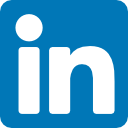Who was Dr Earl Carlson?
Posted on 30th March 2017 at 15:29
Dr Carlson was born in Minneapolis on 25th March 1897. He had a difficult birth and in his own words was "a victim of spastic and athetoid paralysis". He recalled how his neighbours looked pityingly on him, wanting to know what was wrong with him. His mother used a stock reply, saying that he was "just born that way". This is the title of his autobiography. Earl Carlson, Born That Way, (Evesham: Arthur James, 1952).
Education was an important part of Dr Carlson’s life and his mother fought to get him into a school rather than an institution. He started school at eight years of age and although he faced many difficulties throughout his life he overcame these. He graduated from Yale Medical School and became a Doctor with an international reputation.
As well as a great love of reading Earl Carlson had an interest in science and ‘secretly dreamed of becoming an engineer or an inventor’. His heroes were famous inventors and engineers Thomas Edison and Charles Proteus Steinmetz. He wrote to them about his ambitions and received replies which inspired him. He was particularly inspired by Steinmetz, who was disabled, and reasoned that if someone like Steinmetz ‘could win recognition as an electrical wizard’ then there was hope for him to realise his dreams.
It was when Earl Carlson was employed in Princeton University that he took an interest in biology and decided on a career in medicine. A fall on the ice and subsequent ‘rescue’ by Bud Stillman was to have far reaching consequences for Carlson.

Dr Earl Carlson (Source: Cerebral Palsy Midlands)
If anyone had told me then that the Stillman family would one day play an extremely important part in my life, I should have thought him mad. It certainly was improbable that the paths of a Minneapolis labourer's son and of a New York banker's son should cross, and that two people of such different backgrounds should become friends.
Bud Stillman was the son of a wealthy New York family whose parents unselfishly supported Carlson financially and as a ‘family member’ in order for him to pursue his medical studies.
Earl Carlson believed that all children had the right to an education, including those with cerebral palsy. He was one of the founder members of the American Academy for Cerebral Palsy and Developmental Medicine which you can read about by following this link.
He was commissioned by the New Zealand Government to ‘survey the problem of cerebral palsy’ in New Zealand. In March 1948, he toured the country giving public addresses to the medical profession, educationalists, occupational therapists, physiotherapists, speech therapists, social workers, and parents of cerebral palsied children and many others who had an interest in this field.
These are a few press cuttings from his tour of New Zealand which was reported on extensively in the New Zealand press. They are taken from a scrap book held at Cerebral Palsy Midlands.

Southern Cross (Undated)

Dunedin Star 13th March 1948

Otago Daily Times 13th March 1948
It was through Dr Carlson’s international reputation that he came to the attention of Paul Cadbury, one of the founder members of West Midland Spastic Association and Carlson House School. Cerebral Palsy Midlands have copies of his book Born That Way translated into many different languages, as you can see.





If you would like find out more about Dr Carlson, please email CPM Development Ofifcer Sarah Lilly sarah@cpmids.org.uk.
Extracts from the autobiography of Earl Carlson, Born That Way, (Evesham: Arthur James, 1952) have been used in order to write this blog post.
Written by Teresa Hillier
PhD student at Swansea University
Share this post:





